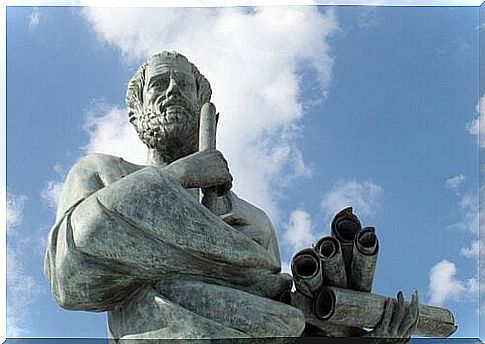Pathos, Ethos And Logos: Aristotle’s Rhetoric

When we present our arguments, whether oral or written, we try to be persuasive. The public must understand our point of view, even before accepting our arguments. That’s what rhetoric is about, for others to adopt our point of view.
So who better to explain rhetoric than Aristotle? Plato’s student’s studies focused on rhetoric. For this reason, Aristotle’s rhetoric consists of three categories: pathos, ethos, and logos.
In Aristotle’s rhetoric, pathos, ethos and logos are the three fundamental pillars. Today, these three categories are considered different ways of convincing an audience about a particular topic, belief, or conclusion. Let’s dive into the topic below.
Aristotle’s pathos
Pathos means ‘suffering and experience’. In Aristotle’s rhetoric, this carries over to the speaker’s or writer’s ability to evoke emotions and feelings in his audience. The pathos is associated with emotion, appeals to empathize with the audience and spark your imagination.
In essence, pathos is seeking empathy with the audience. When used, the values, beliefs, and understanding of the arguer are engaged and communicated to the audience through a story. Thus, studies such as those carried out at Nijmegen University, in Norway, by doctors

The pathos is used when the arguments to be present are controversial. As such arguments often lack logic, success will lie in the ability to empathize with the audience.
For example, in an argument to legally ban abortion, vivid words can be used to describe babies and the innocence of a new life to evoke sadness and concern from the audience.
Aristotle’s ethos
The second category, ethos , means character and comes from the word ethikos , which means moral and show moral personality. For speakers and writers, the ethos is shaped by their credibility and similarity to the audience. The speaker must be trustworthy and respected as an expert on the subject.
For the arguments to be effective, it is not enough to make a logical reasoning. The content must also be presented reliably to become credible.
- According to Aristotle’s rhetoric, ethos is particularly important in creating interest in the audience. The tone and style of the message will be key to this.
- In addition, the character will also be influenced by the reputation of the arguer, which is independent of the message.
- For example, speaking to an audience as equals, rather than passive characters, increases the likelihood that people will engage in actively listening to arguments.
The Aristotle logos
Logos means word, speech or reason. In persuasion, the logos is the logical reasoning behind the speaker’s claims. The logos refers to any attempt to appeal to the intellect, to logical arguments. In this way, logical reasoning has two forms: deductive and inductive.
- Deductive reasoning argues that “if A is true and B is true, the intersection of A and B must also be true. “
- For example ⇔ the logos argument of “women like oranges” would be “women like fruits” and “oranges are fruits”.
- Inductive reasoning also uses premises, but the conclusion is only an expectation and may not necessarily be true because of its subjective nature. For example ⇔ the phrases “Pedro likes comedy” and “this movie is a comedy” can reasonably conclude that “Pedro will like this movie”.

Aristotle’s rhetoric
In Aristotle’s rhetoric, logos was his favorite argumentative technique. However, on a day-to-day basis, everyday arguments depend to a greater extent on pathos and ethos. The combination of all three is used to make essays more persuasive and is the focus of strategy in discussion teams.
People who master them have the ability to convince others to take a certain action or buy a product or service. Even so, in modernity, pathos seems to have a greater influence. Populist discourses, which seek to excite rather than provide logical arguments, seem to be catching on more easily.
The same happens with fake news or fake news . Some even lack logic, but the public accepts them given their great capacity to empathize. Being aware of these three strategies of Aristotle’s rhetoric can help us better understand those messages that only try to persuade us through fallacies.









